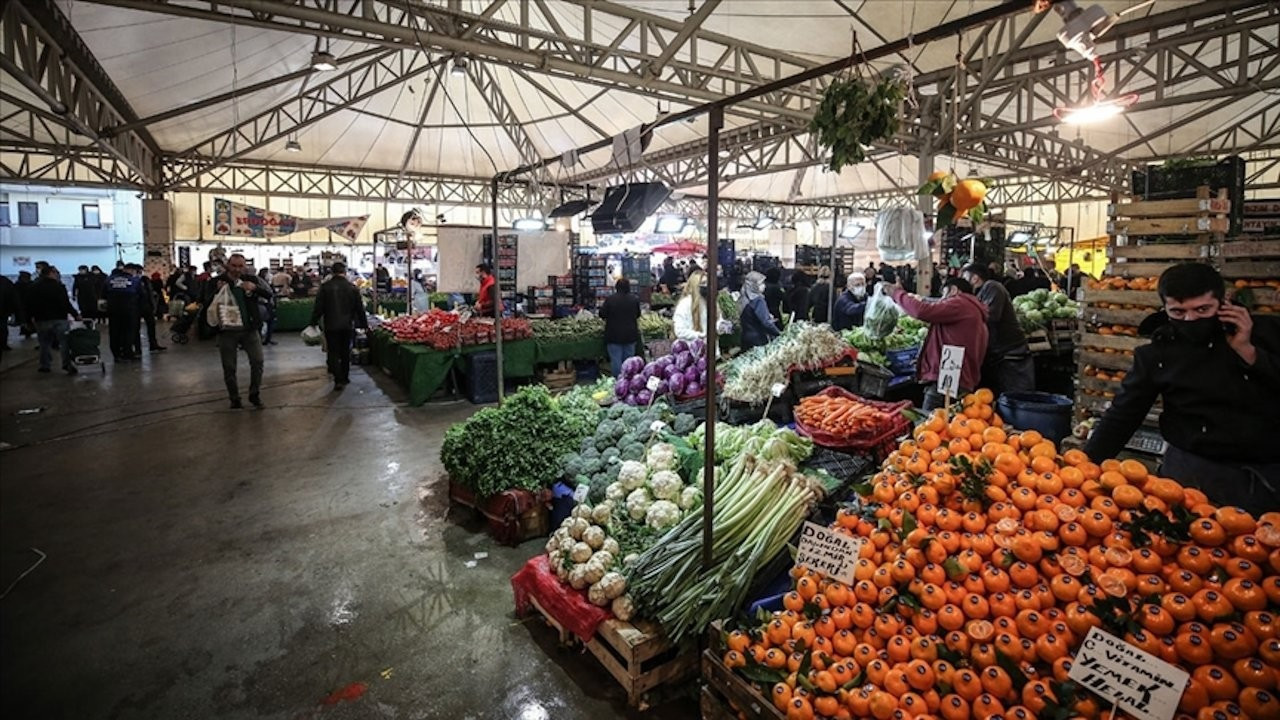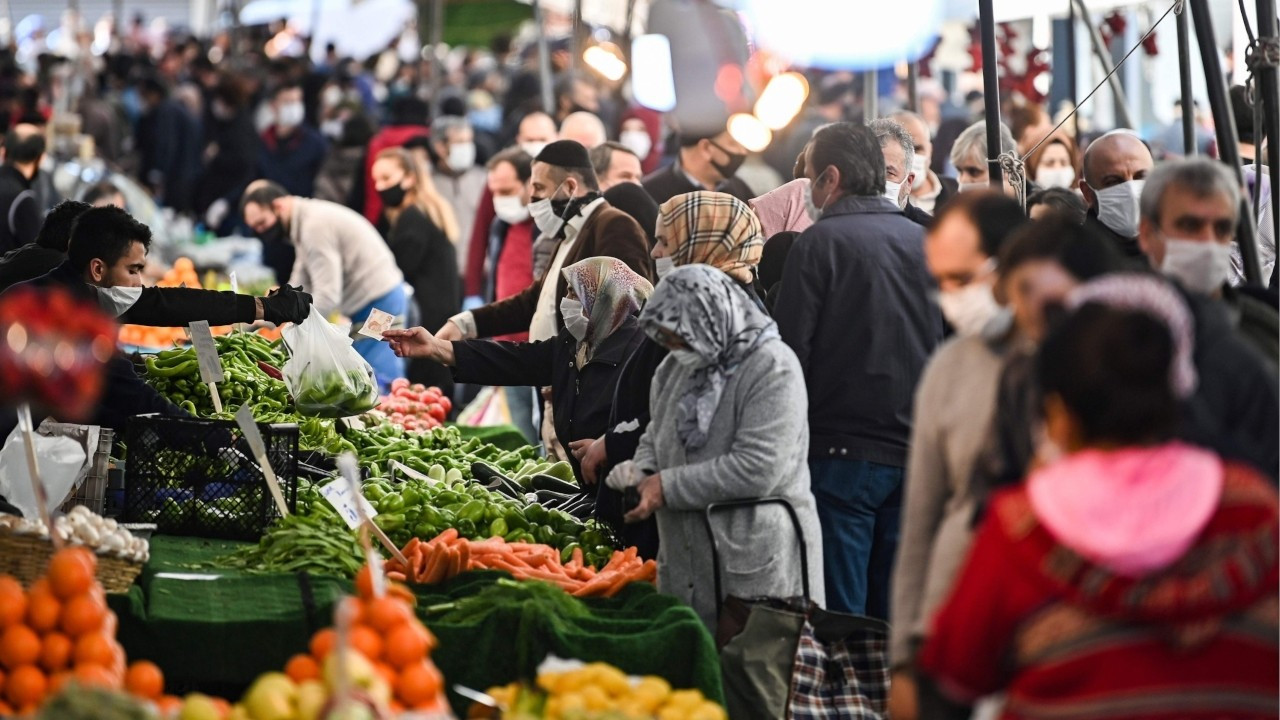In Turkey, people start buying fruits, vegetables in much smaller quantities
Staple foods like tomatoes and cucumbers in Turkey are not immune to inflation. Shoppers started buying them per unit rather than in kilograms as they cut costs in the face of the country's record-high inflation.
Ferhat Yaşar / DUVAR
Turkish shoppers are buying staples such as tomatoes and cucumbers in much smaller quantities from greengrocers in the face of the country’s highest inflation in the last 20 years.
With official annual consumer prices reaching 61.14 percent in March, Turkish shoppers have had to majorly cut costs on the mainstays, as the economy suffers spiraling inflation and workers see their wages melt away.
Independent economists, who question the credibility of the official figures and the Turkish Statistical Institute’s (TÜİK) methodology, said annual inflation in March was at 143 percent.
Greengrocers said that due to the rising prices of fruits and vegetables, they have started selling them at prices set per unit rather than kilograms.
Shoppers are now increasingly buying vegetables and fruits per unit, rather in than in kilos.
Greengrocers, on the other hand, are starting to indicate the prices of vegetables and fruits on their shelves per unit as opposed to per kilos.
While a kilo of zucchini is sold for 19 Turkish Liras, a single zucchini costs 3.68 liras. Aubergines cost 29 liras per kilo and 3.90 per a single unit.
Tomatoes – a staple in Turkish dishes – cost 32.99 liras per kilo and 7.06 per unit. Cucumbers have not gone unscathed against inflation either, with a kilo being sold at 18.99 liras and a unit for 3.57 liras.
Alişan Minas, a greengrocer in Istanbul’s working class district of Kağıthane, has been selling produce for the past seven years. He said he hasn’t been able to buy a kilo of fruit for his family over the last three months.
Minas has three children and a mother to care for and is struggling to make ends meet as his customers have started buying in meager quantities.
“Our future is dark,” Minas said. “What’s coming is uncertain.”
(English version by Nihan Kalle)

 59 percent of Turkish citizens can't make ends meet, survey revealsEconomy
59 percent of Turkish citizens can't make ends meet, survey revealsEconomy Turkey reports annual inflation of 61.14 percent, highest in two decadesEconomy
Turkey reports annual inflation of 61.14 percent, highest in two decadesEconomy Istanbul inflation surges to 20-year high with 63 percentEconomy
Istanbul inflation surges to 20-year high with 63 percentEconomy